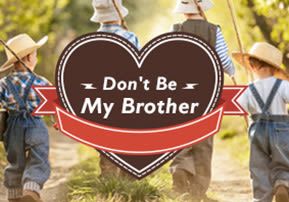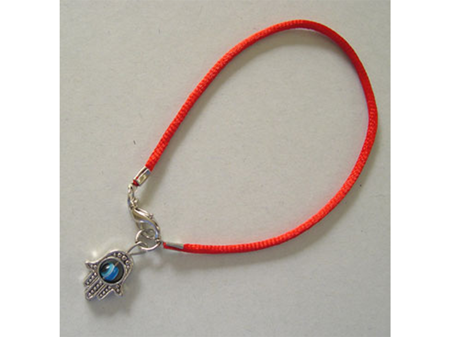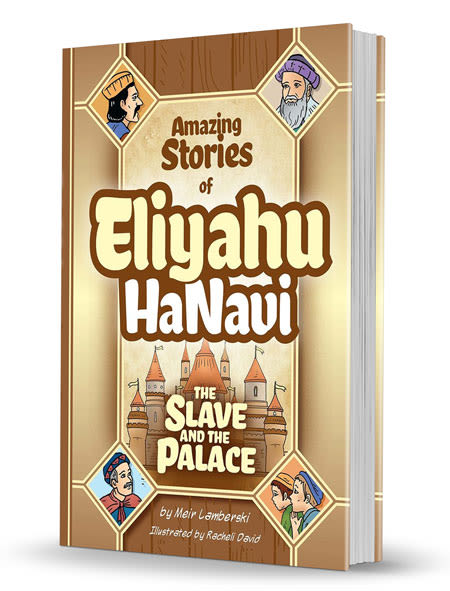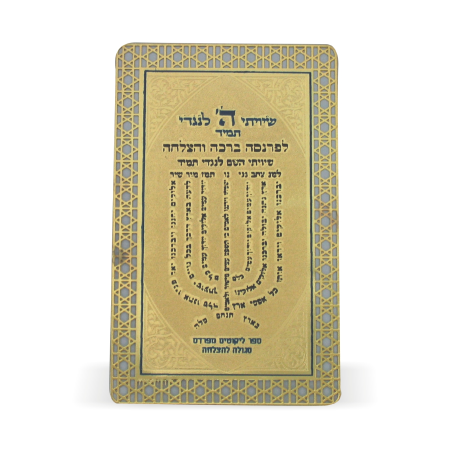
Vayishlach: Don’t Be My Brother
Jacob, in his holy prophetic spirit, knew that the influence of Esau's offspring would be spiritually catastrophic on his offspring...

"Please save me from the hand of my brother, from the hand of Esau…"(Genesis 32:12).
The Torah is extremely thrifty with words. Each word of Torah consists of levels upon levels of deep meanings and not a single word of Torah is superfluous. We must therefore ask ourselves, why does Jacob ask Hashem to save from from “the hand of my brother, from the hand of Esau”? Jacob has one brother only – Esau. Therefore, his prayer could have apparently sufficed with a single term, “save me from my brother” or “save me from Esau”. In either case, Hashem would know who he's talking about. So why does Jacob use both terms?
With Hashem's loving grace, if I'm not mistaken, Jacob was not praying for himself alone. He was praying for his offspring until the end of days. Jacob, in his holy prophetic spirit, knew that the influence of Esau's offspring would be spiritually catastrophic on his own offspring. Jacob therefore prays, “Save me from my brother, from Esau”; his intent is, “Hashem, help me keep my distance from Esau, so that I should not imitate him, be influenced by him, or act like him in any way whatsoever. Although we are biological brothers, protect me from his venomous heretical influence so that he shouldn't become my spiritual brother in any way.”
The danger of Esau and his offspring throughout the generations is the way their riches, power and hedonism lure and tempt Jacob's offspring. Esau seeks the material amenities of this world while totally nullifying emuna or anyone who lives according to the principles of emuna. His values are not only the exact opposite of the values of Jacob, but the two are destined to clash for posterity. Amazingly, any time that Jacob's offspring would make the slightest spiritual compromise in the direction of Esau, they would be confronted with physical tragedy.
How is the above concept prophesied in our passage at hand? In the original Hebrew, “Please save me from the hand” is hatzileni na miyad; the “Baal HaTurim” points out that the first letter of each of these three words – hey, nun and mem – are the three letters of the name “Haman”, the arch-tyrant and direct descendant of Esau who attempted to engineer the Holocaust of all times.
Jacob's prayer teaches us that there can be no compromise with Esau and his way of life. Anytime a Jew makes the slightest concession to Esau by diluting Jewish law, custom or deportment in the slightest, while trying to appease Esau and fit into the Esau-type lifestyle, he not only endangers his spiritual future but his physical life as well. The historical precedents are many.
Haman made sure that at Achashverosh's banquet, there would be special tables of glatt-kosher food for the Jews. Yet, Mordechai ordered the Jews to stay far away from the royal feast. Many of the “liberal” and “modern” Jews yelled at Mordechai and called him “fanatic” and “extreme”. They ignored him and participated anyway. The Midrash tells that they ultimately mingled with non-Jewish women just as Haman had planned. Their participation in the royal banquet led to the decree that all the Jews should be destroyed, Heaven forbid. Were it not for the extreme teshuva that the Jewish People did, fasting for three days and nights and strengthening themselves in Torah, they wouldn't have aroused the needed Divine mercy to rescind the harsh decree.
Fast-forwarding to the nineteenth and early twentieth centuries, the spirit of reform and modernism spread like wildfire through Germany and many parts of Poland. The German Jews had an expression, “Be a Jew at home and a German on the outside.” They adopted the appearance, speech and manners of their Gentile neighbors, until soon, they were no longer Jews at home either, for many of them intermarried and assimilated. Their marriage to non-Jews did not save them from the fate of the gas chambers. The Aryan Germans, as we learn from the Gemara in tractate Megilla, are also the descendants of Esau. Their symbol, the eagle, was also the symbol of the Romans, Esau's descendants as well, who destroyed our Second Holy Temple in Jerusalem.
Habituating oneself in any way to Esau's way of life guarantees disaster, Heaven forbid. Understandably, Jacob prayed so very fervently that he and his offspring should stay far away, both physically and spiritually, from Esau. In other words, from an ethical and spiritual sense, “Hashem, don't let me feel like a brother to Esau. Help me immerse myself in the Torah and to live exclusively by its teachings. Guard me so that Esau's ways shouldn't rub off on me or influence me in any way.” We'd be well advised to pray and live our lives in the same no-compromise manner when it comes to Torah and holiness. If we resemble Esau in any way, then it's time to rectify and return to the ways of Torah, for the Torah is the very best spiritual and physical insurance we have for a good life for us and for our offspring until the end of time.
An old Hebrew folk expression says, “Better a nearby friend than a faraway brother.” With the above in mind, we can understand this saying much better on a spiritual level. We're much better off with a friend who shares the values of emuna with us, who joins us in our constant quest to get closer to Hashem, than an unethical heretic brother from the same mother who tries to cool down our emuna. To the latter we say, “I wish you the best, but spiritually, please don't be my brother”. Our forefather Jacob prayed the same way.










